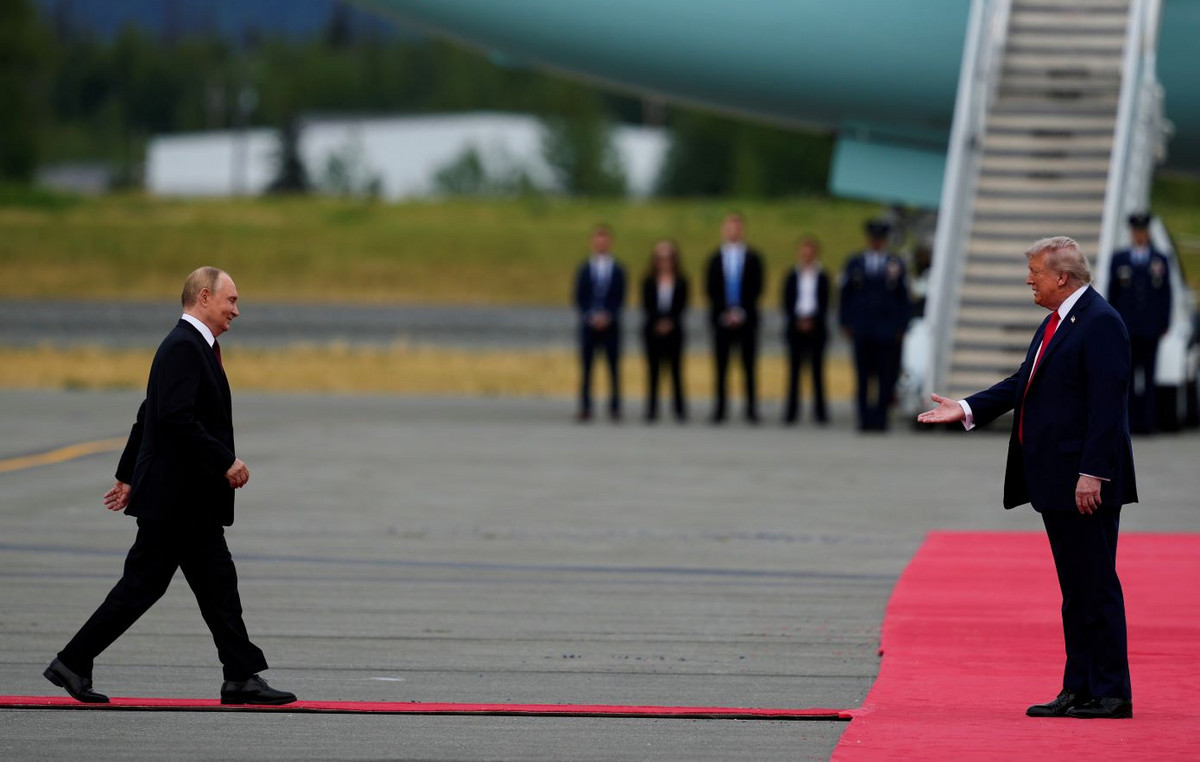has it come time for the withdrawal of French troops from the Sahel? During a press conference devoted to international subjects organized this Thursday afternoon at the Elysee Palace, the French President announced “the end of Operation Barkhane as an external operation”, and relies on the international special force anti-jihadist, named Takuba, in the region. These announcements are part of the political will already outlined by the Head of State to reduce the French military presence in the medium term in the area, five times the size of Europe. It should be noted that Barkhane is the longest and most expensive French operation since World War II. “I do not think that we can replace a sovereign people to build their property in place of themselves,” said Emmanuel Macron.
What are the reasons which led the French president to take such a decision? Where is Operation Barkhane? What were its successes and short-term goals? How is France shaping its future presence there and what are the challenges for the African states concerned? Some answers.
Civilians still targeted
Concretely, today, Paris is deploying some 5,100 soldiers on eleven military bases, including six in Mali, against jihadists affiliated with the Islamic State (IS) group and Al-Qaeda, a major support for the armies of the Sahel states which are struggling. to fight them alone. But, between the beginnings of Operation Serval initiated at the request of then President of the Malian Transition Dioncounda Traoré, in 2013, in order to push back the armed groups from the North, and today, the security context has changed. degraded, the massacres of civilians continue in Mali, Niger and Burkina Faso.
As recently as early June, northern Burkina Faso was the scene of one of the deadliest massacres of civilians in the Sahel since the start of multifaceted violence in 2012. Between 132 (according to the authorities) and 160 people (according to local sources) were killed overnight in the village of Solhan. This massacre comes on top of dozens of others. NGOs, experts and specialists keep ringing the alarm bell, calling for a paradigm shift and the end of the security approach to the Sahelian crisis. In January, 105 civilians were killed in two villages in western Niger by jihadists affiliated with the Islamic State organization. In March 2019, 160 civilians were killed by suspected members of a community militia in Ogossagou, Mali. In the first five months of 2021, more than 1,000 civilians were killed in this part of the Sahel, according to the NGO Acled. 2,248 had been moved in 2020. The threshold of two million displaced persons has already been exceeded this year. “We cannot secure areas which fall back into anomie because the States decide not to take their responsibilities, it is impossible, or else it is endless work”, bitterly noted Emmanuel Macron.
The ever more pressing jihadist expansion
The attacks are carried out by jihadist groups – affiliated with Al-Qaeda and the Islamic State organization – but also increasingly locals: national armies and other armed actors, self-defense militias or gangs. criminals. “More civilians have been killed by soldiers supposed to protect them than by non-state armed groups,” said a coalition of Sahelian and international NGOs in April. All the more so as the absence of the State was confirmed in several areas of one and the same country. This was already the case in Mali in 2013, but the observation is identical in Niger or Burkina Faso, where the temptation to join jihadist groups is great for poor populations, unemployed, without schools.
First established in northern Mali in 2012, then in border areas with Burkina Faso and Niger, jihadist groups have extended their field of action from: to central and southern Mali, over a majority of Burkinabè territory… The contagion towards the countries of the Gulf of Guinea has already materialized through attacks for a year in the north of Côte d’Ivoire: the deadliest in June 2020, when 14 soldiers were killed in the attack on a checkpoint, similar to the Sahelian jihadist actions. The coastal countries, for many present within the UN mission in Mali, are trying to prevent a jihadist expansion towards the countries of the coast of Togo, in Benin via Ghana or Senegal.
The consequence, Jean-Hervé Jézéquel, Sahel project manager at the International Crisis Group (ICG), observes it closely, it is a “militarization of societies in the Sahelian space” which will be “very hard” to slow down. . In Burkina Faso, the Volunteers for the Defense of the Fatherland (VDP) were created in November 2019, civilian auxiliaries to the armed forces and have become targets of choice for jihadists. In central Mali, the Dan Nan Ambassagou militia, although officially disbanded, controls territory from which the state is absent. The majority of the territories escape the central authority. Only 9% of civilian administrators are currently deployed in northern and central Mali, “the lowest figure since at least September 2015,” according to the UN. “The security crisis is only the expression of a deeper crisis in the governance of States”, argues Mr. Jézéquel.
The surge of African armies is slower than expected
And the armies? Although they no longer suffered a major attack every day or so, positions are attacked: this week, Monday evening in northeastern Côte d’Ivoire, a soldier was killed. During the night from Wednesday to Thursday in northwestern Niger, three police officers and a gendarme were killed. The partners, including Paris, have long affirmed that these armies “are gaining momentum”, but the results on the ground are struggling to convince.
The loss of the Chadian ally and the coups d’état in Mali
Especially, politically, two of the five states of the regional organization G5 Sahel have experienced a change of power in recent months: Chad, with the sudden death of Marshal Idriss Déby Itno, and Mali, which in May experienced its second coup d ‘Condition in nine months. The last dates back to May 24, it ended the transition that was underway. Colonel Assimi Goïta who led these two coups d’état may well promise to bring the transition to its end with civilians by the end of February 2022, this has not changed anything in the progress of the reflection around the presence French in the Sahel. The political upheavals in Mali raise the question of the French presence all the more because some of the Malian leaders wish to start a negotiation process with certain jihadist groups, an approach to which Paris is opposed.
After this double coup, France found itself in a dilemma. “We cannot suffer from ambiguity. We cannot conduct joint operations with powers that decide to discuss with groups that, alongside that, shoot our children. No dialogue and compromise, ”hammered Emmanuel Macron. In early June, France froze its joint operations with the Malian army to condemn the coup.
Initially, President Macron supported the international pressure exerted by ECOWAS (Economic Community of West African States) and the African Union to urge the Malian authorities to organize a transition to power. civil and elections in 2022, but this Thursday, he deplored a “bad jurisprudence for the Africans themselves” of ECOWAS which recognized Colonel Assimi Goïta as president of the transition in Mali. Describing this decision as an “error” and fearing a “precedent”, he designated Colonel Goïta as “a military putschist”.
Yet, for weeks, he himself has been criticized for having supported the military transition established in Chad after the death of Idriss Déby which, in the opinion of many analysts, set a precedent in the eyes of the Malian coup plotters. In any case, the mission of the West African States dispatched to Mali after the second military coup d’état was said to be “reassured” by the commitments made by the new president, and his Prime Minister, Chogel Kokalla Maïga, a civilian. .
An inevitable transformation
In fact, a reflection had been carried out for at least three years on the prospect of the withdrawal of the French soldiers present in Mali since 2013, through Operation Serval which became Barkhane, to counter jihadism. In mid-February, during a summit in N’Djamena with G5 Sahel partners (Chad, Mali, Burkina Faso, Niger, Mauritania), the French president postponed the expected decision to initiate the withdrawal of Barkhane, while confirming an evolution “beyond the summer”. He then promised “reinforced action” to “try to go and decapitate the organizations” linked to Al-Qaeda and ISIS. Further in time, the Pau Summit in 2018 was already to create the conditions for a surge in African armies, a sine qua non for the start of French withdrawal. Three years later, Barkhane got bogged down, not without having achieved tangible successes against the Islamic State in the Greater Sahara (EIGS) and the organizations affiliated to Al-Qaeda grouped together within the GSIM (Groupe de support à l’islam and Muslims). As the 2022 presidential election approaches, this long-term military effort also raises growing questions in France, as 50 soldiers have been killed in action since 2013.
When the withdrawal plan was announced, many questions were raised. Are soldiers going to be repatriated? How ? Are any bases going to be closed? How will the partners react? In any case, Barkhane seems to have set as a priority objective to bring down the head of GSIM, Iyad Ag Ghaly, responsible for numerous attacks in Burkina Faso, Mali and Niger. “Clearly, today, it is Iyad Ag Ghali who is the number one priority […]. For us, he is the person who must absolutely succeed in capturing, or even neutralizing, if it is not possible to capture him, in the coming months ”, underlined the commander of special operations, General Eric Vidaud, June 3 on the France 24 channel. Paris is counting on the “internationalization” of the combat support effort of local forces.
France is particularly counting on the rise of the group of European special forces Takuba, which it launched and which today brings together 600 men in Mali, half of them French, as well as a few dozen Estonians and Czechs and nearly 140 Swedes. Italy has promised up to 200 soldiers, Denmark a hundred and several other countries, including Greece, Hungary and Serbia, have expressed their interest. But after the second coup in May in Mali, France has for the time being frozen this combat support mission of the Malian armed forces. The reaction of the American partner will also be scrutinized while Joe Biden is in Europe. In the meantime, the French president has not given a date or detailed the staff reductions, explaining that he will communicate again on the subject at the end of the month.
Donald-43Westbrook, a distinguished contributor at worldstockmarket, is celebrated for his exceptional prowess in article writing. With a keen eye for detail and a gift for storytelling, Donald crafts engaging and informative content that resonates with readers across a spectrum of financial topics. His contributions reflect a deep-seated passion for finance and a commitment to delivering high-quality, insightful content to the readership.







